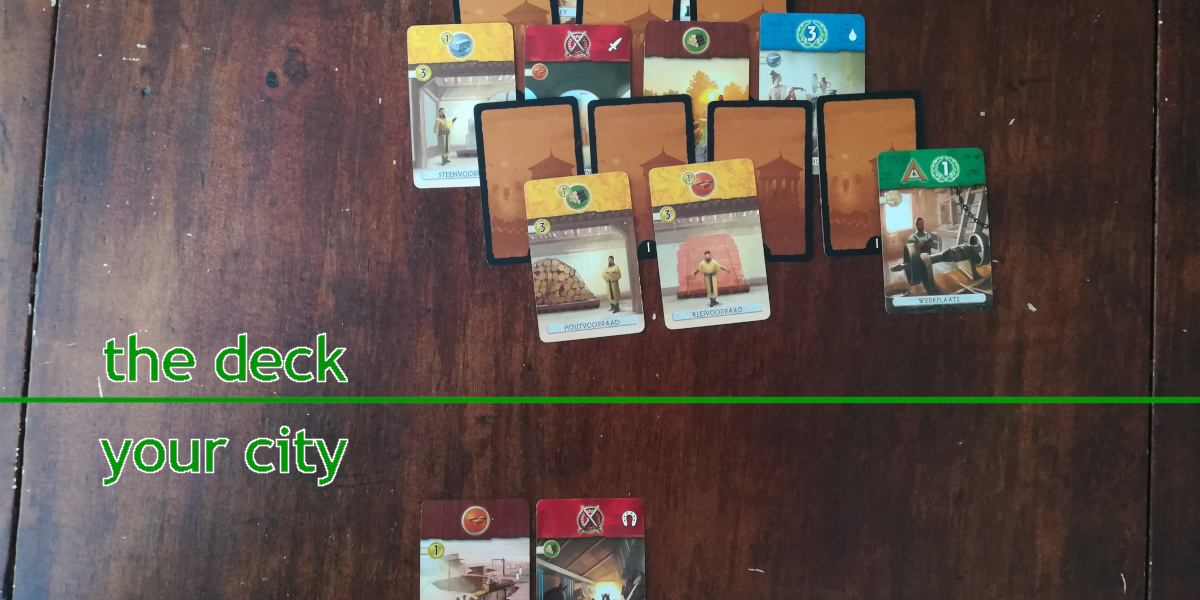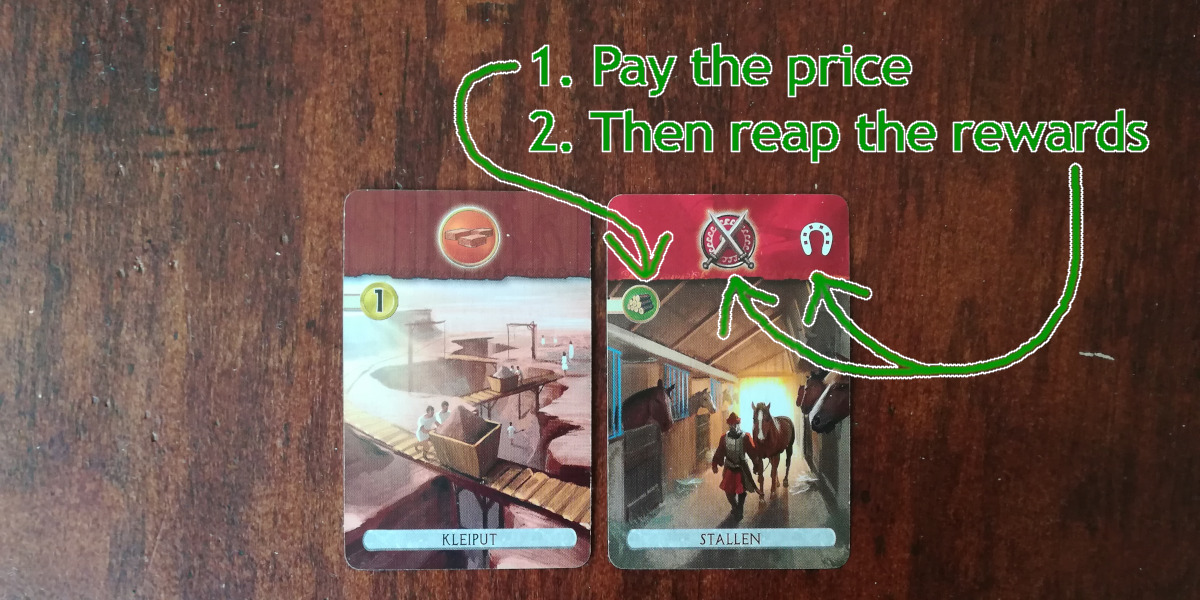The table-top game that packs tons of strategy in a sprint
7 Wonders Duel
If you are looking for a two-player table-top game and can curb your rage, buy this game.
The other day my friend told me my table top games are boring. She has also taken to calling me a boomer, so I had to move quickly! (Rest assured I fit solidly in the Gen X bracket.)
So I contacted a couple of real gamers I knew, and told them:
I am looking for something that:
- can be played by 2 players
- is quick to learn yet stays challenging
- takes between 10 and 30 minutes to finish
- card or board
- costs up to twice of what you might expect from a ‘small’ game.
They gave me a list of suggestions, two of which I bought.
And hoo boy, was 7 Wonders Duel a hit! My friend and I have played the game about a dozen times in the span of two months.
(The other game? ‘Twas Claim, the German Whist with vampires. I like it, but we have barely touched it.)
So first: what is it? 7 Wonders Duel is a spin-off from the game 7 Wonders (in case you happen to know that one) and is a mixed card (drawing) and board game. In it you build cities and civilisations: the player with the most evolved civilisation wins.
There are three victory tracks: military, scientific, and points. Although the military and science tracks work very well to keep your opponent on their toes, you will find that their victories are hard to achieve and most wins end up being points victories.
There are three eras represented by three decks of cards, each card representing a building. Furthermore there are the eponymous wonders, seven of which can be built at most. Although wonders are more expensive than regular buildings, they convey unique advantages (such as playing a zombie card from the discard pile, or playing an extra turn) that regular buildings cannot.
Like I said, it takes some time to explore the rules and options, so I am not going to list them all. There is, however, if you are interested, a video series on the Tubes of U called Watch It Played that does a heavily commented play-through. Here is the first episode. My apologies in advance for the tweeness. Oh, the tweeness!
Since the game can be played in less than 30 minutes, even a heavily annotated play-through won’t take a lot of your time, and they have helpfully divided the play-through into a number of videos.
Back to the review!
Let us get this out of the way: 7 Wonders Duel almost hits all the points from my wish list. The only exception being “quick to learn”, but really, that is only a problem for the first 2 or 3 games and since each game takes about 20 – 30 minutes, it is not much of a problem at all.
Also, the first era is the simplest, then the second, then the third, so you sort of learn to play the game as you go.
As for why it is such good game, that is much harder to express. Saying “it is a very balanced game” is, while true, also not something that is going to set a lot of hearts aflutter. Nevertheless, if you hate the type of game where once you have figured out the moves that guarantee a victory and given the right conditions – skill, luck – you are going to always win, this might be the game for you.
There are numerous paths to victory, but only a selection of them available at any given time. What makes the game really interesting though is that every time a card is played, this selection of paths changes and you have to adapt your strategy. What you end up doing is trying to play a balanced game while stimying your opponent at every possible opportunity. Basically, you are not just playing your own game, but in your head also your opponent’s.
Some of the ways you can influence the way your opponent’s game flows:
- Build a wonder with a free turn attached, so you can play two cards in row.
- Sell a high value building before your opponent can get to it.
- Play the science or military track, so your opponent no longer has a free hand but must respond.
- Build the sort of wonder that lets you destroy your opponent’s money or buildings.
- Win a free resources coin so you no longer have to worry about money.
- And so on…
There are two minor down-sides to this game, in my opinion, and I mention them just to be complete:
The first is that, even though I rarely get worked up because of a game (or rather, never until now), I felt the rage rise in me on a couple of occasions. Make a couple of bad moves and you get stuck into a losing rut that is almost impossible to get out of. Your opponent may not even notice it, but to me it felt that she was starting her victory laps half an era before the end, with me tied behind her chariot as she kept going around the Circus Maximus.
Note that I am not saying that if one of the players is a sore loser, you should not play it. This is a game that it might be worth being a sore loser about, if that makes sense.
The other problem is, or so it seems to me, that the balance is so fine that if I were to physically lose a couple of cards (maybe the dog ate them), I am not sure the game would remain as playable.
Note that the game introduces randomness by letting you discard 13 cards unseen at the start, 3 for each of the first two eras and 7 for the last, so you have some leeway. Nevertheless, if you lose a couple of high value cards (let us say, both the papyrus resource cards), that’s gotta go and skew the game a bit.
At first I wanted to deduct a point for that last bit. Then I realised I have already had a handful of hours of fun out of a game that can be had for less than the cost of a night’s out, so docking a point for that seemed churlish. I can easily afford a spare. Therefore I am giving 7 Wonders Duel the full 5 out of 5 points.
By the way, another way to try before you buy is play one of the online versions. I believe both are free to play.

Image 1: the deck gets laid out in a pre-defined fashion and then players take turns taking the cards that are face up and not covered by any other card. If face-down cards are no longer covered by other cards, they must first be turned up before the next player’s turn.

Image 2: one of the players has paid one coin to build the clay pit and one wood to build the stables. Since the player does not posess wood, they will have had to pay the bank two coins instead – more if the opponent produces wood. The rewards are worth it; the clay pit will produce one brick per round for the remainder of the game and the stables will move the player’s army one step closer to the opponent’s city. The presence of a white symbol (here a horse shoe) means the player has the chance to build a related military building for free later in the game.
Leave a Reply